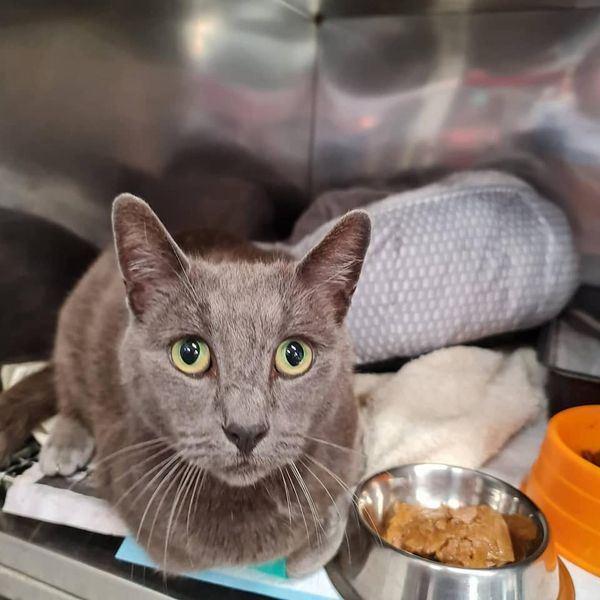
Brave boy Dexter had a terrifying encounter with a deadly brown snake.
After his daily outing exploring the nature reserve behind his loving owner's property, Dexter returned home unsteady on his feet. By the next morning, he was unable to walk and wasn't interested in his breakfast, so his vigilant owners rushed him to see our KVH team. He was quickly diagnosed with snake envenomation and received antivenom and other supportive treatments. Dexter made a swift recovery and is now back at home with his family.
With the weather warming up, snakes are out and about again so we urge pet owners to be vigilant in watching for possible snake envenomation in their pets. Signs of envenomation include unsteadiness, inability to walk, dilated pupils, rapid breathing and hypersalivation. With rapid diagnosis and administration of antivenom, the prognosis for survival is excellent, with up to 90% of patients surviving. Without antivenom, 1/3 of dogs and 2/3 of cats may survive. Time is critical with snake envenomation, and antivenom must be administered within 48hrs to be effective. Dogs deteriorate must faster than cats and are more severely effected by the venom, so it is even more crucial for them to have timely veterinary attention.
If you witness an encounter between your pet and a snake, DO NOT attempt to catch the snake. If the snake is dead, DO NOT touch the snake. A clear description of the snake's appearance is adequate.
Not all snake bites result in envenomation, but it is critical to present your pet to a veterinarian immediately for assessment and testing to identify whether the bite has resulted in envenomation.